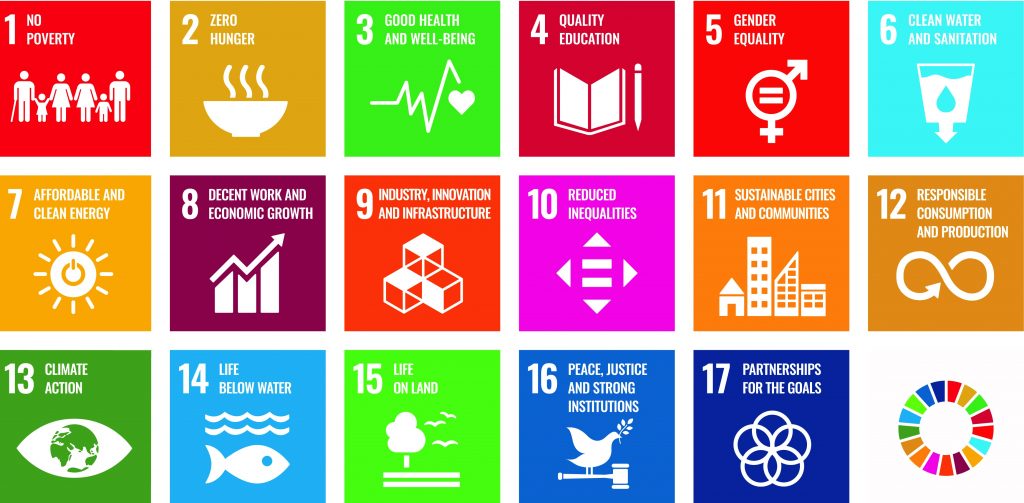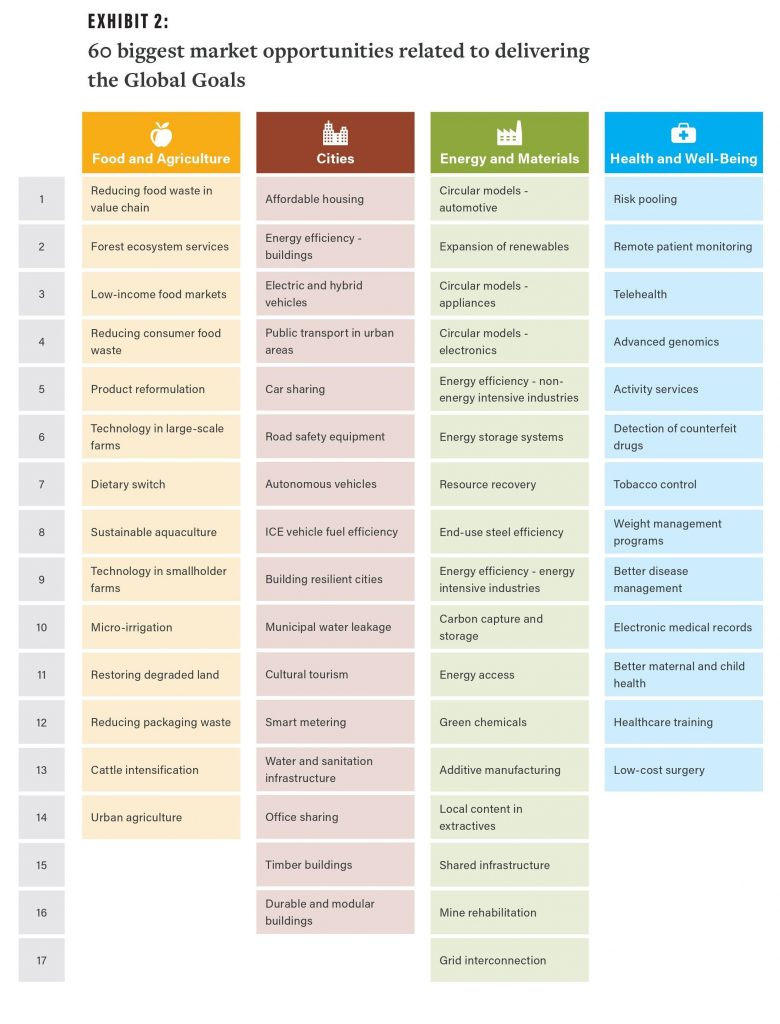Sustainable Development Goals

The role of business in achieving the Sustainable Development Goals (SDGs)
- Business is one of the main partners in the implementation of Sustainable Development Goals (SDGs). Companies can contribute to the implementation of sustainable development goals through their activities.
- It is noteworthy that companies that adopt sustainable development practices in their business management strategy are more successful than their competitors.
- Businesses need to realize the importance of the positive results that can be achieved by achieving sustainable economic development goals in terms of improving the economic environment.
- At the stage of defining the corporate sustainability strategy and action plan, the business should focus on and link the planned activities to the achievement of Sustainable Development Goals (SDGs) in the country. Also, based on the needs of the country, identify new priority areas with relevant specific objectives that will contribute to the achievement of Sustainable Development Goals (SDGs).
- When carrying out charitable and sponsorship activities, businesses should focus on and link planned activities to Sustainable Development Goals (SDGs).
Sustainable Development Goals (SDGs)
On September 25, 2015, 193 UN member states agreed on a document on the Sustainable Development Agenda, entitled “Transforming Our World: The 2030 Agenda for Sustainable Development”. The initiative aims to increase the quality of life in all countries of the world through the eradication of poverty and hunger, the protection of climate and natural resources, the promotion of inclusive economic growth and the establishment of a peaceful and just society.
Under the agreement, each country must implement reforms by 2030 to meet the 17 Sustainable Development Goals. The achievement of the objectives will be evaluated annually by a high-level political forum on sustainable development.
“Achieving the Global Goals creates at least US$12 trillion in
opportunities.”
Achieving the Global Goals opens up US$12 trillion of market opportunities in the four economic systems examined by the Commission. These are food and agriculture, cities, energy and materials, and health and well-being. They represent around 60 percent of the real economy and are critical to delivering the Global Goals. To capture these opportunities in full, businesses need to pursue social and environmental sustainability as avidly as they pursue market share and shareholder value. If a critical mass of companies joins us in doing this now, together we will become an unstoppable force. If they don’t, the costs and uncertainty of unsustainable development could swell until there is no viable world in which to do business.
This is new territory. Moving business to a sustainable growth model will be disruptive, with big risks as well as opportunities at stake. It will involve experimenting with new “circular” and more agile business models and digital platforms that can grow exponentially to shape new social and environmental value chains. Knowing how to move first and fast is critical; so is reducing exposure to the risk of assets being stranded by the shift to low-carbon, more automated economies.
The Business Case for the Global Goals
The business case for sustainable development is strong already: it opens up new opportunities and big efficiency gains; it drives innovation; and it enhances reputations. With a reputation for sustainability, companies attract and retain employees, consumers, B2B customers and investors, and they secure their licence to operate. That’s why sustainable companies around the globe are thriving and delivering attractive returns to shareholders. That is why over 9,000 companies around the world have already signed up to the 10 principles of the UN Global Compact, a guide to sustainable business behaviour.
The business case for sustainable development as core strategy gets much stronger as the world achieves the Global Goals. Our research shows achieving the Global Goals in just four economic systems could open 60 market “hot spots” worth an estimated US$12 trillion by 2030 in business savings and revenue (Exhibit 2). The total economic prize from implementing the Global Goals could be 2-3 times bigger, assuming that the benefits are captured across the whole economy and accompanied by much higher labour and resource productivity. That’s a fair assumption. Consider that achieving the single goal of gender equity could contribute up to US$28 trillion to global GDP by 2025, according to one estimate. The overall prize is enormous.

Parties participating at the national level
Achieving the Sustainable Development Goals (SDGs) is a multifaceted process, in which the following participate:
- Central government bodies
- Local self-government bodies
- International Institutions
- Civil society
- Businesses




 Search
Search